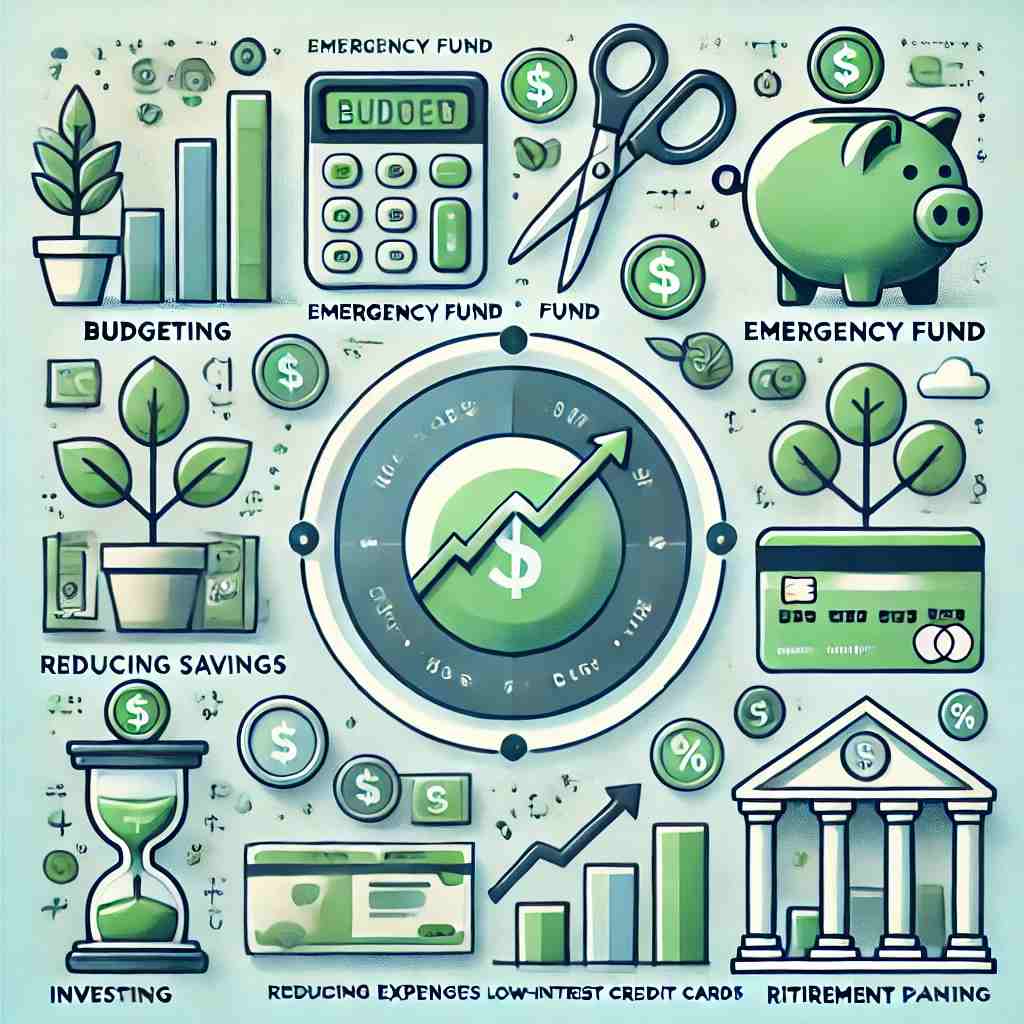Finance

7 Smart Ways to Save Money and Secure Your Financial Future
1. Create a Budget That Works for You
A well-planned budget is the cornerstone of financial success. Start by tracking your income and expenses to identify areas where you can cut back. Free apps like Mint or YNAB (You Need a Budget) can help you stay organized.
2. Prioritize an Emergency Fund
Life is unpredictable, and an emergency fund acts as a financial safety net. Aim to save at least three to six months’ worth of living expenses. Automate your savings to build this fund without extra effort.
3. Take Advantage of High-Interest Savings Accounts
Switching to a high-yield savings account can significantly boost your savings. Online banks often offer better interest rates compared to traditional banks, helping your money grow faster.
4. Reduce Unnecessary Expenses
Cutting back on non-essential spending is one of the easiest ways to save. Review your subscriptions, dine out less often, and opt for free or low-cost activities for entertainment.
5. Explore Low-Interest Credit Cards
High-interest credit card debt can eat into your finances. Look for low-interest or balance transfer credit cards to reduce interest payments and pay off debt faster.
6. Invest in Your Future
Investing allows your money to grow over time. Start small with mutual funds, ETFs, or index funds, and gradually explore options like stocks and real estate. Remember, the earlier you start, the more you benefit from compound growth.
7. Plan for Retirement Early
It's never too early to think about retirement. Contribute to a 401(k) or an IRA to take advantage of tax benefits and employer matching programs. Use a retirement calculator to set achievable goals.
Why Saving Money Matters
Saving money isn't just about financial security—it's about peace of mind. By implementing these strategies, you can enjoy more freedom, worry less about unexpected expenses, and focus on achieving long-term goals.
Final Thoughts: Take the First Step Today
Start small but stay consistent. Whether it’s opening a high-yield savings account, creating a budget, or investing in your retirement, every step you take brings you closer to financial freedom.